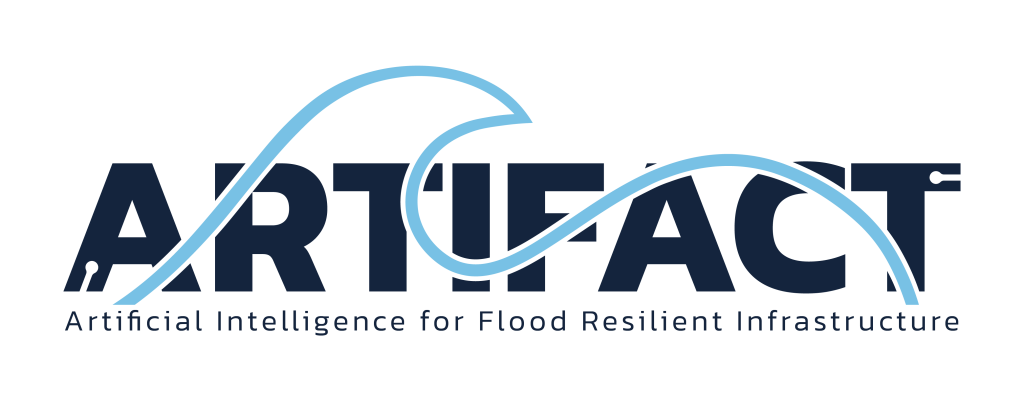Overview of useful links for familiarizing yourself with Artificial Intelligence (AI) and its applications
This guide is part of an initiative aimed at equipping young researchers (ESR – Early Stage Researchers) to work in the field of artificial intelligence for flood mitigation and flood resilience infrastructure within the ARTIFACT project. The focus of this document is to enable young researchers to find high-quality materials and resources that will facilitate the acquisition of key knowledge and skills necessary for understanding and applying AI and ML (Machine Learning) techniques.
Given the wealth of available information on AI and ML, beginners often face challenges in deciding where to start. Our goal is to provide guidelines that will help you organize better and make efficient use of existing resources. The focus is not on providing detailed explanations of concepts or algorithms but on facilitating access to materials that explain these in the best possible way.
This guide will help you to:
- Find courses tailored to your level of knowledge.
- Access video materials that explain key concepts and techniques.
- Lay the foundation for further learning through recommendations for practical resources and communities.
Brief overview:
- AI For Everyone
- Machine Learning Specialization
- Deep Learning Specialization
- TensorFlow: Advanced Techniques Specialization
- Additional materials
- Practical tools for learning and applying machine learning

AI For Everyone
One of the courses that stands out as an ideal starting point for learning the basics of artificial intelligence is AI For Everyone by Andrew Ng, one of the leading experts in the field of artificial intelligence and machine learning. This course, available on the Coursera platform, is designed to provide a clear and comprehensive introduction to AI without requiring any technical background, making it accessible to a broad audience.
Course content
The course covers key topics that enable an understanding of the fundamental concepts of artificial intelligence and its impact on society and industry:
- Introduction to artificial intelligence, including the differences between AI, machine learning, and deep learning.
- Practical examples of AI applications in various fields, with a focus on business and social implications.
- Ethics and responsibility in the development and application of artificial intelligence.
- The impact of AI on the job market and strategies for adapting to future challenges.
Difficulty
The AI For Everyone course is designed for absolute beginners and falls into the Pre-Beginner category. It is suitable for individuals with no technical knowledge of AI or machine learning but who wish to understand basic concepts, terminology, and potential applications. Its content is tailored to a broad audience.
Availability & Certification
The course is available on the Coursera platform and can be taken for free, with the option to obtain a certificate for a fee.
Machine Learning Specialization
Machine Learning Specialization is a comprehensive learning program by DeepLearning.AI. This program consists of three interconnected courses and serves as a detailed guide for understanding and practically applying machine learning techniques. It is intended for those who wish to master key concepts and acquire the skills necessary for developing and implementing machine learning models.
Specialization content
The specialization is divided into three courses covering the following topics:
- Supervised Machine Learning: Regression and Classification: Basics of regression and classification, including algorithms such as linear and logistic regression, as well as foundational concepts of optimization and model evaluation.
- Advanced Learning Algorithms: Working with more complex techniques, including neural networks, unsupervised learning, and recommendation algorithms.
- Unsupervised Learning, Recommenders, Reinforcement Learning: Focuses on data clustering methods, building recommendation systems, and practical applications on large datasets.
Difficulty
Machine Learning Specialization program is intended for individuals with basic knowledge of mathematics, statistics, and programming (particularly in Python). It is classified as a Beginner-level program and is ideal for those who already have a foundational technical background and wish to expand their knowledge and skills. Previous experience with concepts like linear algebra and probability is helpful but not strictly required, as the course offers introductions to key theoretical foundations.
Availability and Certification
The specialization is available on the Coursera platform, with a free trial option. Certificates are awarded for each individual course upon successful completion of assignments and tests. The program is self-paced, and the total duration depends on the learner’s progress through the content. Video content from this specialization is also available on YouTube.

Deep Learning Specialization
Deep Learning Specialization is a prestigious educational program developed by Andrew Ng and the team at DeepLearning.AI. This program offers a comprehensive overview of deep learning techniques, starting from fundamental concepts to advanced topics such as convolutional and recurrent neural networks, and their applications in real-world scenarios.
Specialization Content
The program is divided into five courses that collectively cover key aspects of deep learning:
- Neural Networks and Deep Learning: Basics of neural networks and creating first models using TensorFlow and Keras.
- Improving Deep Neural Networks: Hyperparameter optimization, regularization, and techniques like dropout and batch normalization.
- Structuring Machine Learning Projects: Project organization and strategies for improving models and datasets.
- Convolutional Neural Networks (CNNs): Image processing through convolutional networks for object detection and classification.
- Sequence Models: RNN, LSTM, and GRU for analyzing sequential data such as language and time series.
Difficulty
The specialization is classified as Intermediate and is intended for those who already have a solid foundation in machine learning and programming (particularly in Python). Participants are recommended to have prior knowledge of linear algebra, differential calculus, and optimization.
Availability and Certification
The specialization is available on the Coursera platform with free trial options. Certificates are awarded for each individual course upon successful completion of assignments and tests. The program is self-paced, and the total duration depends on the learner’s progress through the content. Video content from this specialization is also available on the YouTube platform, organized by course modules (Neural Networks and Deep Learning, Improving Deep Neural Networks, Structuring Machine Learning Projects, CNNs, Sequence Models).
TensorFlow: Advanced Techniques Specialization
TensorFlow: Advanced Techniques Specialization is a series of courses designed for those who want to advance their knowledge in deep learning using TensorFlow. This specialization focuses on advanced techniques and tools required for building and optimizing complex models, making it an ideal choice for researchers with foundational experience in machine learning.
Specialization Content
The specialization is divided into four courses:
- Custom Models, Layers, and Loss Functions with TensorFlow: Development of custom networks, layers, and loss functions in TensorFlow.
- Advanced Computer Vision with TensorFlow: Image detection, segmentation, and generation using convolutional networks.
- Advanced NLP with TensorFlow: Working with transformers for analyzing and generating textual data.
- Generative Deep Learning with TensorFlow: GANs (Generative Adversarial Networks) for synthesizing realistic images, text, and audio.
Difficulty
This specialization is classified as Intermediate and is recommended for learners with solid experience in TensorFlow and foundational knowledge of deep learning. Prior knowledge of Python and neural networks is essential for successfully following the course.
Availability and Certification
The specialization is available on the Coursera platform with a free trial option. Certificates are awarded for each individual course upon successful completion of assignments and tests. The program is self-paced, and the total duration depends on the learner’s progress through the content.

Additional Materials
In addition to these courses, specialized courses available on online learning platforms are recommended for further exploration of advanced techniques in deep learning. On the Coursera platform, you can find courses covering topics such as:
- Generative Adversarial Networks (GANs).
- Natural Language Processing (NLP).
- TensorFlow for Deep Learning.
- Encoder-Decoder architectures.
- Deep learning in real-world projects.
In addition to the Coursera platform, advanced courses can also be found on other services, such as the NVIDIA Deep Learning Institute (DLI), which offers content tailored to specific applications (Generative AI with diffusion models, Risk monitoring using satellite imagery).
For a visual and intuitive understanding of how neural networks function, we recommend the YouTube playlist by Grant Sanderson (known as 3Blue1Brown). This video series:
- Clearly and visually demonstrates the fundamental principles of neural networks.
- Explains how advanced AI techniques like Transformers, Large Language Models (LLMs), and Attention mechanisms work.
- Uses intuitive examples and animations to enhance understanding of complex mathematical and algorithmic concepts.
Grant Sanderson’s series is an excellent addition to formal courses, as it provides deeper understanding through visual representations and simplified explanations. These materials are particularly useful for beginners, as well as for those looking to solidify their grasp of more complex topics.
Practical tools for learning and applying ML
Practical application is essential to mastering skills in machine learning, and online tools like Kaggle provide an excellent opportunity to apply theoretical knowledge to real-world problems. Kaggle is a platform that combines datasets, competitions, free courses, and a coding environment, enabling users to practice data analysis, develop models, and solve challenges.
On Kaggle, you can:
- Access a vast library of datasets and explore various domains.
- Participate in competitions that offer practical problems with real data.
- Use a free programming environment with built-in tools like TensorFlow and PyTorch.
- Take free courses to acquire both basic and advanced skills.
Kaggle is ideal for beginners looking to learn the basics, as well as for experienced users seeking challenges. For more information, visit the Kaggle platform.
In addition to Kaggle, other open-source platforms offer similar opportunities for practical learning and development:



